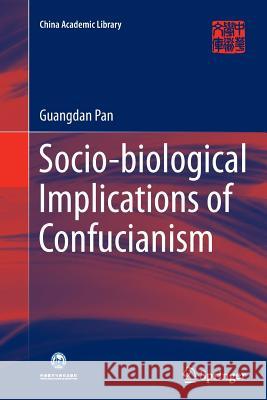Socio-Biological Implications of Confucianism » książka
topmenu
Socio-Biological Implications of Confucianism
ISBN-13: 9783662525586 / Angielski / Miękka / 2016 / 226 str.
Kategorie BISAC:
Wydawca:
Springer
Seria wydawnicza:
Język:
Angielski
ISBN-13:
9783662525586
Rok wydania:
2016
Wydanie:
Softcover Repri
Numer serii:
000458290
Ilość stron:
226
Waga:
3.69 kg
Wymiary:
23.5 x 15.5
Oprawa:
Miękka
Wolumenów:
01
Dodatkowe informacje:
Wydanie ilustrowane











